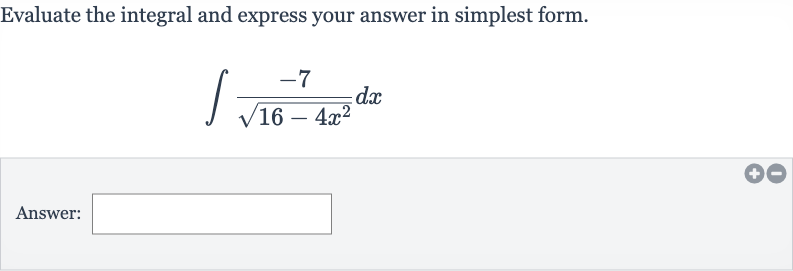Full solution
Q. Evaluate the integral and express your answer in simplest form.Answer:
- Choose Trig Substitution: We are given the integral: To solve this integral, we can use a trigonometric substitution. Let's choose , because the expression under the square root resembles the Pythagorean identity .
- Find : Differentiate with respect to to find :
- Substitute and : Substitute and into the integral:Simplify the expression under the square root:
- Simplify Expression: Recognize that is a multiple of the Pythagorean identity, so we can simplify further:Simplify the square root using the identity :
- Cancel Cos Terms: Cancel out the terms:Simplify the constant factors:
- Integrate with Respect: Integrate with respect to theta:
- Express in : Now we need to express in terms of . Since , we can write . To find , we take the inverse sine (arcsin) of both sides:Substitute back into the integral result:\(\left(-\frac{\(7\)}{\(2\)}\right) * \theta + C = \left(-\frac{\(7\)}{\(2\)}\right) * \arcsin\left(\frac{x}{\(2\)}\right) + C

